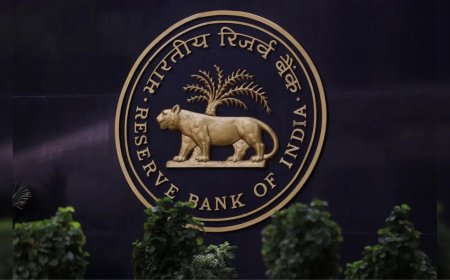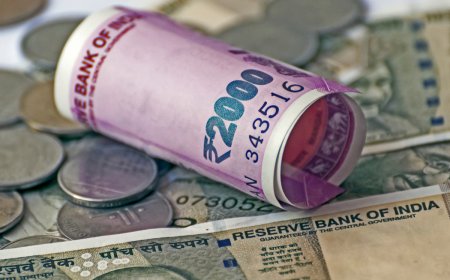Margin management turns tricky for Balkrishna amid soft demand, new bets
Balkrishna Industries struggles with margin management due to weak global demand and rising costs, even as it invests in new capacity and diversification. Analysts advise caution in the short term.

Balkrishna Industries Ltd. (BKT), the leading manufacturer of off-highway tyres, is witnessing increasing challenges in managing margins as a confluence of weak global demand, currency fluctuations, and rising operational costs pressure its profitability. The company, known for its strategic focus on agricultural and industrial tyre exports, now finds itself at a crossroads as it navigates a shifting demand landscape and invests in capacity expansion and product diversification.
Muted Demand Weighs on Performance
Balkrishna Industries reported a mixed set of results for the June quarter of FY26. While revenue saw a modest year-on-year (YoY) uptick, operating profit margins took a hit due to elevated input costs and underutilization of expanded capacity.
The company’s standalone revenue rose 4.5% YoY to ₹2,349 crore, supported partly by a favorable base and marginal recovery in European demand. However, EBITDA margins contracted to 22.8%, down from 26.5% a year ago, marking the fourth consecutive quarter of margin pressure.
“The softness in global demand, especially in key markets like Europe and North America, continues to impact order inflows. The OEM (original equipment manufacturer) segment is particularly sluggish, with replacement demand offering only partial offset,” said an analyst at Motilal Oswal Financial Services.
Expansion Bets Raise Operating Leverage Risk
BKT has been executing a series of capital-intensive projects over the past few years, including capacity expansion at its Bhuj and Waluj plants, and investments in carbon black and captive power units to reduce dependence on imports and improve cost efficiency.
While these moves are aimed at long-term margin stability and vertical integration, the current underutilization—hovering around 70% of total capacity—has led to increased fixed cost absorption, eroding near-term profitability.
“Capacity-led growth strategies require a strong demand tailwind to be effective. In the absence of volume support, the high fixed cost base can prove counterproductive, especially in margin-sensitive segments like OHT tyres,” noted Pramod Shah, Senior Equity Analyst at ICICI Securities.
Pricing Discipline Maintained, But Cost Pressures Persist
Despite the macro headwinds, Balkrishna has refrained from aggressive price hikes to protect market share in highly competitive geographies. This pricing discipline, while customer-friendly, has made margin recovery slower, especially when juxtaposed with rising freight, rubber, and energy costs.
Additionally, fluctuations in the euro and dollar—currencies in which BKT invoices most of its export sales—have added another layer of uncertainty. In Q1FY26, the company took a ₹48 crore forex loss, compared to a minor gain in the same period last year.
New Ventures Show Promise, But Need Scale
To diversify revenue streams and reduce cyclicality, Balkrishna has entered new adjacencies, including carbon black and power generation. While these verticals offer margin accretion potential in the long term, they are still in early-stage ramp-up mode.
The company’s greenfield carbon black unit, with a capacity of 140,000 MT, started contributing meaningfully this quarter, but analysts caution that benefits will accrue only once economies of scale are achieved.
“Investments in backward integration are commendable and will eventually pay off, but near-term ROI remains underwhelming. We need to see sustained volume traction before these verticals can significantly support the bottom line,” said Vivek Rathi, VP-Research at Axis Securities.
Stock Performance Reflects Cautious Sentiment
The BKT stock has underperformed the Nifty Auto Index over the past 6 months, declining around 7% compared to a 12% rise in the broader index. Investor sentiment remains muted amid persistent margin concerns and uncertain global demand recovery.
Brokerages are currently divided in their outlook. While some have retained a "Hold" rating citing near-term challenges, others believe the worst may be over and have recommended “Buy” on dips, banking on improved rural demand, easing input costs, and the company’s strong brand equity in the OHT space.
Investor Outlook: Hope in H2, But Risks Remain
Looking ahead, market participants expect margin stability to return in the second half of FY26, provided global agricultural and infrastructure activity picks up. A normal monsoon and stable rubber prices could offer some relief. However, the bigger lever will be volume revival across key geographies.
“In the medium to long term, Balkrishna’s fundamentals remain intact. Their product quality, R&D focus, and brand strength give them a strong edge. But in the short term, investors should be prepared for volatile earnings as margin pressures persist,” concluded Mehul Desai, Fund Manager at Edelweiss Mutual Fund.
As the company charts its growth path through expansion, innovation, and operational restructuring, the next few quarters will be crucial in determining whether BKT can reclaim its margin resilience amid softening winds.
What's Your Reaction?
 Like
0
Like
0
 Dislike
0
Dislike
0
 Love
0
Love
0
 Funny
0
Funny
0
 Angry
0
Angry
0
 Sad
0
Sad
0
 Wow
0
Wow
0













































































